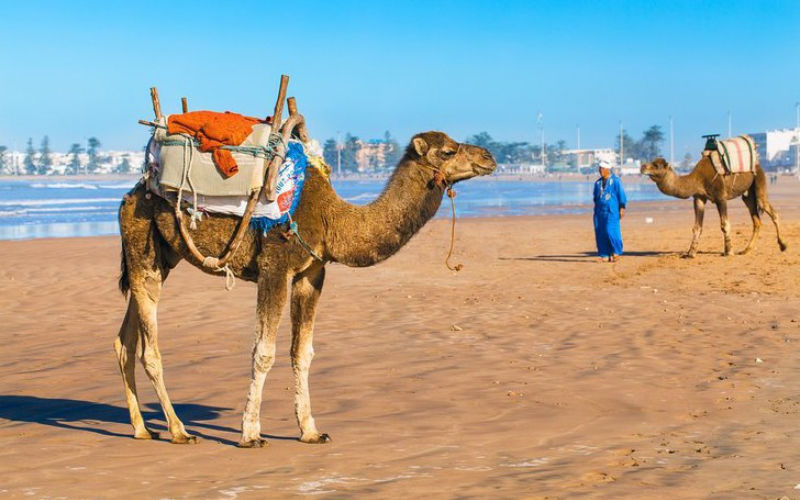Morocco Beach Tourism Marred by Animal Attractions, Vacationers Complain

In Morocco, holidaymakers criticize the circulation of horses, camels, and sometimes even "ostriches" on beaches, which not only poses environmental and health problems but also ruins their vacations.
According to holidaymakers, horses, camels, and others cause beach pollution with their excrement, degradation of sand and sidewalks due to their hooves and repeated movements, transmission of harmful bacteria among beachgoers, as well as risks of accidents due to animals coming close to visitors. They denounce, through photos and posts on social networks, the disfigurement of the place’s beauty by "beach animals," bad odors and sudden noises that disturb vacationers, the repulsion of some tourists seeking cleanliness and tranquility, and the promotion of dangerous practices such as wild races and anarchic competitions disrupting children’s activities.
"The use of certain types of beasts and animals in coastal cities during the summer season seems on the surface to be a normal thing; but the absence of a legal framework makes this practice a source of a whole series of environmental and tourist imbalances," comments an environmental association actor to Hespress. He was keen to specify that "several European countries use beasts in coastal and inland cities, whether for promotional or service purposes; but the fundamental difference lies in the fact that these practices are subject there to an organized legal framework ensuring safety, respecting the environment, and involving local authorities in organization and control."
While European countries have succeeded, "Morocco still experiences great anarchy in this area, where this seasonal profession is practiced outside any legal framework; which leads to multiple abuses, such as child labor, abandonment of waste and animal excrement in public places, which disfigures the image of coastal cities and harms their tourist attractiveness," he observes. According to him, "the use of beasts can become a real tourist asset and a local economic resource, provided it is regulated and its contours are clearly defined." It is therefore necessary to "know the owners of these beasts, distinguish between legal and illegal operators, and impose clear conditions regarding cleanliness, respect for animals, and public safety," he added.
For Morocco to succeed in this area, local authorities must "contribute to organizing this sector in a win-win logic; through the development of specifications, continuous monitoring, and active participation in regulating a seasonal profession that can be part of the tourist and environmental landscape of coastal cities, with the imperative of adopting legal rigor and field monitoring for all violations that affect this vital area," the association actor is convinced.
Related Articles
-

Gulf Tourists and Moroccan Women Arrested in Marrakech Prostitution Sting
3 September 2025
-

Groom’s Secret Past Exposed: First Wife Crashes Moroccan Wedding, Halting Ceremony
3 September 2025
-

Moroccan Workers Protest Unpaid Millions at Saudi Prince’s Palace in Tangier
3 September 2025
-

Ryanair Slashes Spanish Routes, Shifts Focus to Morocco and Italy Amid Airport Tax Hike
3 September 2025
-

Morocco Bolsters Air Force with 10 Cutting-Edge Caracal Helicopters from Airbus
3 September 2025